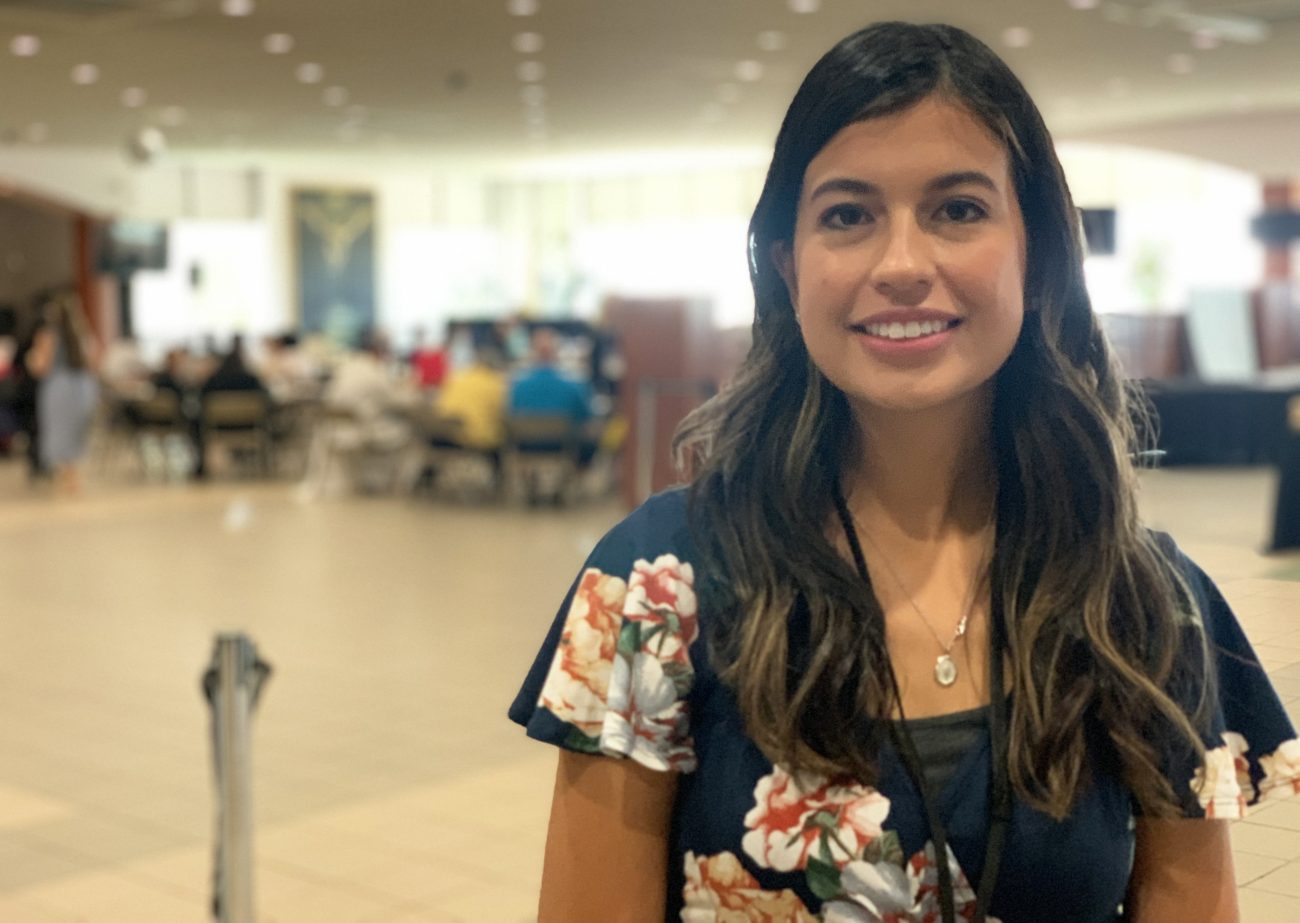Catholic nurses are drawing on faith, fellowship and fortitude to navigate an increasingly complex health care environment, said participants at a global conference held earlier this month.
Members of the National Association of Catholic Nurses USA (NACN-USA) gathered Aug. 2-4 at the National Shrine of Our Lady of Czestochowa in Doylestown for a world congress that blended spirituality with specifics on best practices in the field.
Tracing its origins to the early 20th century, NACN-USA promotes Catholic moral principles in nursing while fostering professional development through educational programs, spiritual formation, patient advocacy and the integration of faith and health.
[hotblock]
The nonprofit organization is part of congress co-sponsor CICIAMS — the French acronym for the International Catholic Committee for Nurses and Medico-Social Assistants — which works closely with the Holy See’s Dicastery for Promoting Integral Human Development.
Cardinal Peter Turkson greeted conference attendees on behalf of the Holy See and in particular the Pontifical Academy of Sciences and the Pontifical Academy of Social Sciences, of which he is chancellor.
As “a noble and gracious ministry,” nursing should be “(rooted) in an authentic human ecology,” the cardinal said.
Nurses themselves are “people who have succeeded in transcending their vulnerabilities to provide antidotes and solutions to those who suffer,” said Cardinal Turkson.
In the process, Catholic nurses “are finding challenges out there,” said NCAN-USA communications chair Janet Munday, a registered nurse.
Cases involving gender dysphoria, for example, are “a tough place for Catholic nurses,” she said. “We want to uphold the dignity of the patient, and we want to be compassionate, but we also want to speak truth to the patient.”
Although abortion has shifted to chemical over surgical procedures, reducing the level of nurses’ involvement, many nurses face pushback for “(refusing) to participate in surgical sterilizations,” said former NCAN-USA president Cheryl Hettman.
[tower]
Ethical and moral dilemmas surrounding end of life care are among the reasons critical care nurse Christina Freeman has sought “solidarity and guidance” from NCAN-USA.
Working at a level one trauma surgical center in Albuquerque, New Mexico – where she encounters “anything from open heart surgeries to mass casualty events” – Freeman said she sees “so much suffering.”
Amid that pain, Catholic nurses “have the opportunity to be the hands and feet of Christ,” she said.
“The motivation is that they’re serving God, and imitating Jesus, the Divine Physician,” said Congress speaker Father Gerald Murray, author of Calming the Storm: Navigating the Crises Facing the Catholic Church and Society. “Nurses (help) treat patients not simply in the physical aspect, but also the spiritual, showing them love and concern.”
Psychiatric nurse Teresa Dubak Sipos does exactly that in her ministry as a nurse chaplain at a state mental health hospital in Ohio.
Sipos, who focuses on patients battling both behavioral and substance abuse issues, presides at regular spiritual care groups and interfaith services, leading prayers, offering reflections on Scripture, and developing “a spiritual distress nursing care plan.”
The level of faith among her patients is “phenomenal,” she said, and the results have at times been dramatic.
Sipos recalled being summoned by a doctor to assist with one young man, who had to be restrained due to a psychotic outburst.
“I prayed the Our Father with him, and he came out of his psychotic state and started praying with us,” she said. “We got him out of the restraints … and he’s done very well since, and prays for others now.”
Catholic nurses “use evidence-based practices” and blend “the science of nursing with its art,” said Munday, with faith enabling them to draw on “the virtues of patience, perseverance and understanding to look at the fullness of that patient.”
For each nurse, witnessing to the Catholic faith – whether working in a hospital, clinic, school or other setting – “will be different with every single patient,” said Freeman. “It doesn’t have to look a certain way.”
Simply “inviting the Divine Physician into your practice” is enough to radically transform the level of care, she added.
“I have found that when I offer my day to God, when I give my patient to God, I am always presented with the opportunity to serve my patients better,” she said.
***
To learn more about the National Catholic Association of Nurses – USA, visit the organization’s website.
PREVIOUS: Archbishop announces clergy changes in parishes, seminary
NEXT: Archdiocesan foster care worker knows need for parents firsthand




Share this story